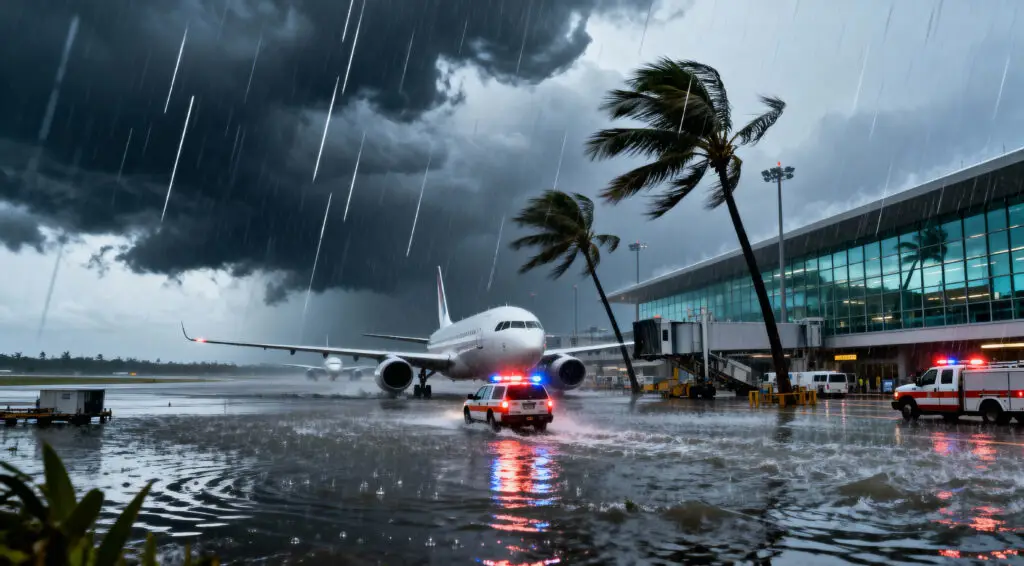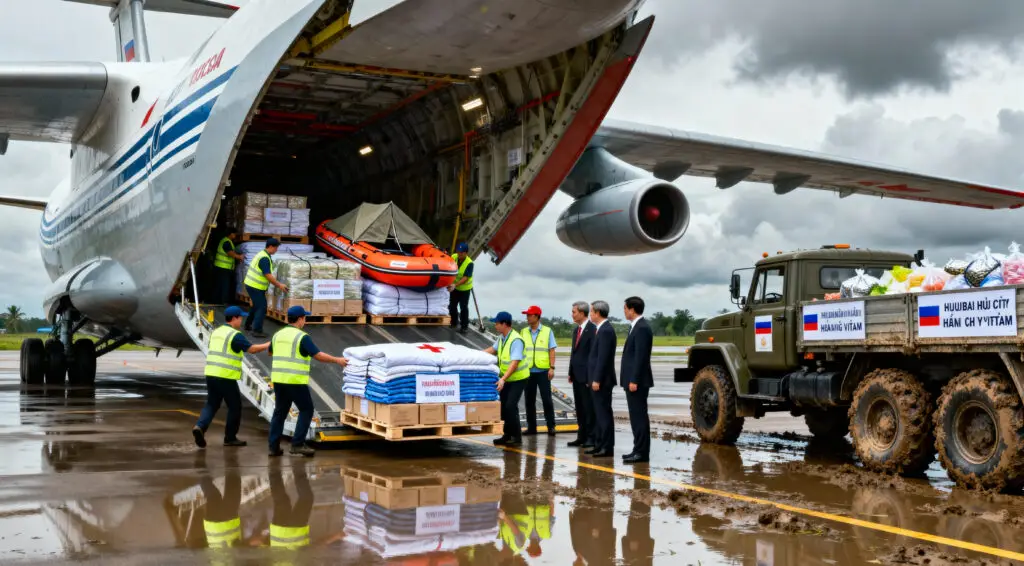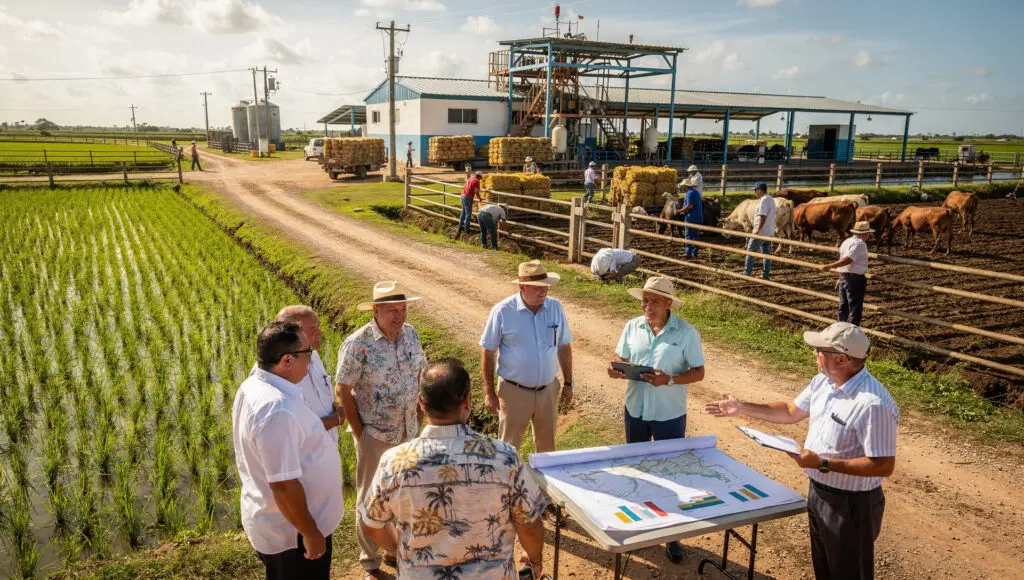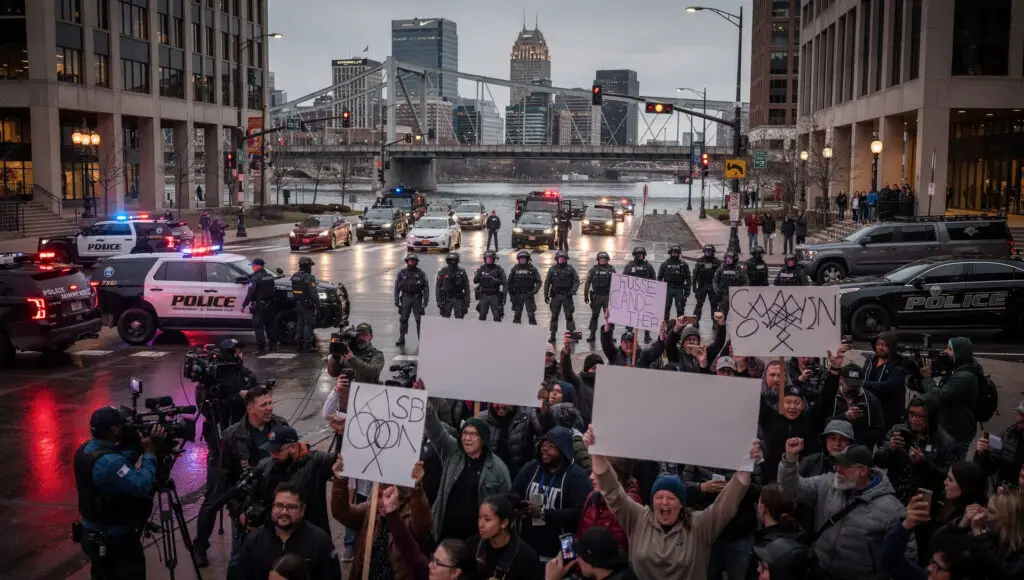Category 5 Hurricane Shuts Down Key Jamaican Airports
Hurricane Melissa, a powerful Category 5 storm, has caused extensive damage across Jamaica, disrupting transportation and delaying aid operations. On October 29, officials confirmed that Norman Manley International Airport in Kingston avoided major structural damage, though operations remain limited as emergency response efforts take priority.
Honorable Daryl Vaz, Minister of Energy, Telecommunications, and Transport, inspected the airport and confirmed that the Palisadoes roadway to the terminal remains intact. Vaz stated that once normal operations resume, emergency and relief flights will take precedence.
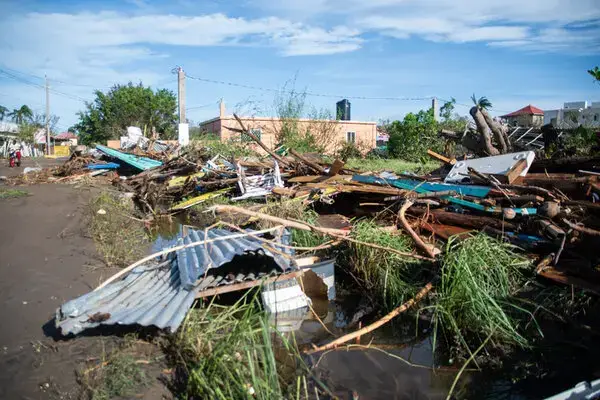
Source: New York Times
Kingston’s Airport Escapes Heavy Damage
The Jamaica Civil Aviation Authority (JCAA) and the Airports Authority of Jamaica (AAJ) reported that Norman Manley International Airport sustained only minor surface damage. Discussions with the airport’s operator, PAC Kingston Airport Limited (PACKAL), indicated that limited operations could restart as early as the afternoon of October 29.
“We’ve gotten away with very little,” Vaz remarked, expressing optimism about reopening. However, he emphasized that initial flights will prioritize aid workers and essential supplies rather than regular commercial passengers.
Sangster International Suffers Severe Damage
Sangster International Airport in Montego Bay, Jamaica’s busiest air hub, suffered significant structural damage. Video footage from inside the terminal showed roof collapses, heavy flooding, and widespread water damage in passenger areas.
“That is where most of the damage has happened,” Vaz said, noting that western parishes may face logistical challenges as relief goods will need to be routed through Kingston. With western Jamaica cut off from direct air access, ground transport from the capital will delay the delivery of emergency supplies and assistance.
Recommended Article: Category 5 Hurricane Melissa Poses Major Threat to Jamaica
Ian Fleming International Under Evaluation
Authorities continue assessing Ian Fleming International Airport in St. Mary Parish. Vaz said the government intends to announce its reopening soon to allow smaller aircraft to support emergency and inter-island operations.
“We hope to be able to announce the reopening or full operations there as soon as possible,” Vaz added.
Thousands of Tourists Stranded on the Island
The Jamaican Tourism Ministry estimated that approximately 25,000 tourists were on the island when Hurricane Melissa made landfall on October 28. Many remain stranded as the government and airlines coordinate evacuation and emergency travel plans.
Officials urged travelers to monitor official updates from both the Jamaican government and airlines before attempting to fly to or from the island.
Record Winds and Rainfall Compound Damage
Meteorologists reported wind speeds reaching 215 miles per hour, making Hurricane Melissa one of the most powerful storms ever to strike the Caribbean. Some areas experienced over three feet of rainfall, leading to flash floods, landslides, and widespread power outages.
Infrastructure damage across several parishes has severely hindered efforts to deliver food, medical aid, and construction materials to the most affected communities.
Relief Operations Focus on Coordination and Safety
Emergency response teams, supported by local agencies and international partners, are working to restore power, reopen roads, and clear debris from key transportation routes. The Jamaica Defence Force (JDF) and the Office of Disaster Preparedness and Emergency Management (ODPEM) are collaborating with aviation and maritime authorities to coordinate national relief logistics.
Officials emphasized that recovery operations are being carried out in partnership with regional donors and neighboring Caribbean nations.
Hope Amid Ongoing Challenges
While recovery continues, government leaders remain cautiously optimistic that limited airport services could resume within days. Vaz stated that the primary goal is to ensure the safe, organized movement of relief personnel, medical teams, and stranded tourists.
Hurricane Melissa’s devastation underscores Jamaica’s vulnerability to increasingly intense storms driven by climate change and the urgent need for resilient infrastructure to protect both citizens and the tourism sector that underpins the nation’s economy.






